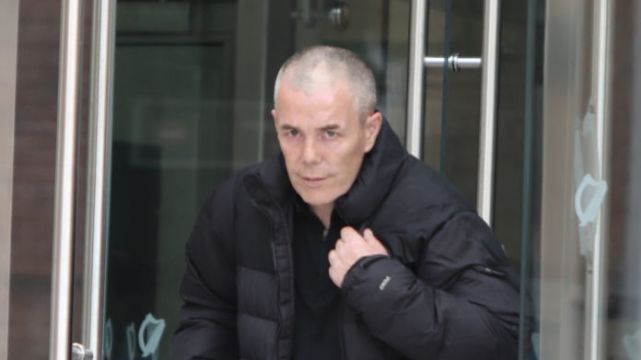A man who threw blue paint on a Luke Kelly statue causing €240 worth of damage has been handed a prison sentence.
Michael Dunne (50), who was living in homeless accommodation at the time, pleaded guilty at Dublin Circuit Criminal Court to criminal damage on July 12th, 2020.
He has 51 previous convictions dating back to 1986, which included five for criminal damage.
On Thursday, Judge Orla Crowe handed Dunne a sentence of 18 months, with the final nine months suspended on strict conditions.
She said Dunne's actions had “caused a lot of upset to a lot of people” as the statue was erected in memory of Luke Kelly, a “prominent character”.
Judge Crowe said the aggravating factors include Dunne's previous convictions and that a bench warrant had been issued as he did not attend the last sentence date in December.
The court was told that Dunne was unable to attend the last court date as he was in hospital at the time.
Judge Crowe noted the mitigating factors included his guilty plea, expressions of remorse, his vulnerable history, and personal circumstances.
Vulnerable
Garda David Kelly told John Moher BL, prosecuting, at an earlier sentencing date that he discovered the damage to the memorial statue and harvested nearby CCTV footage which led to the identification of Dunne.
He was arrested, but nothing came out of those garda interviews.
Gda Kelly agreed with Katherine McGillicuddy BL, defending, that her client offered his sincere apologies for the damage he caused.
He accepted that Dunne was a long-standing drug addict, and that it had not been his idea to damage the statue.
He accepted a suggestion from Ms McGillicuddy that her client was vulnerable and agreed to damage the statue without asking any questions. It was further accepted that Dunne got drugs as a reward for throwing the paint.
Ms McGillicuddy acknowledged that the statue was very important in the local community, as Luke Kelly is an iconic figure.
She said her client felt his actions had caused “a lot of upset”, adding that Dunne's sister is heavily involved in the local community and was embarrassed and ashamed when she learnt of her brother’s behaviour.
Ms McGillicuddy said her client has not been “coping well”, outlining that he has significant mental health difficulties.
She asked the court to take into account that this case has attracted some media attention. She said that in the short time Dunne has been in custody, he has been placed in protective custody due to the upset of other prisoners.
A psychological report was also submitted to the court.
Ms McGillicuddy said Dunne had a very difficult upbringing and his life started to “unravel” at an early age. She asked the court for as much leniency as possible for her client.
Judge Crowe said Dunne's actions had caused upset to others, and while the case had attracted some publicity, she noted he must bear the consequences of his actions.







